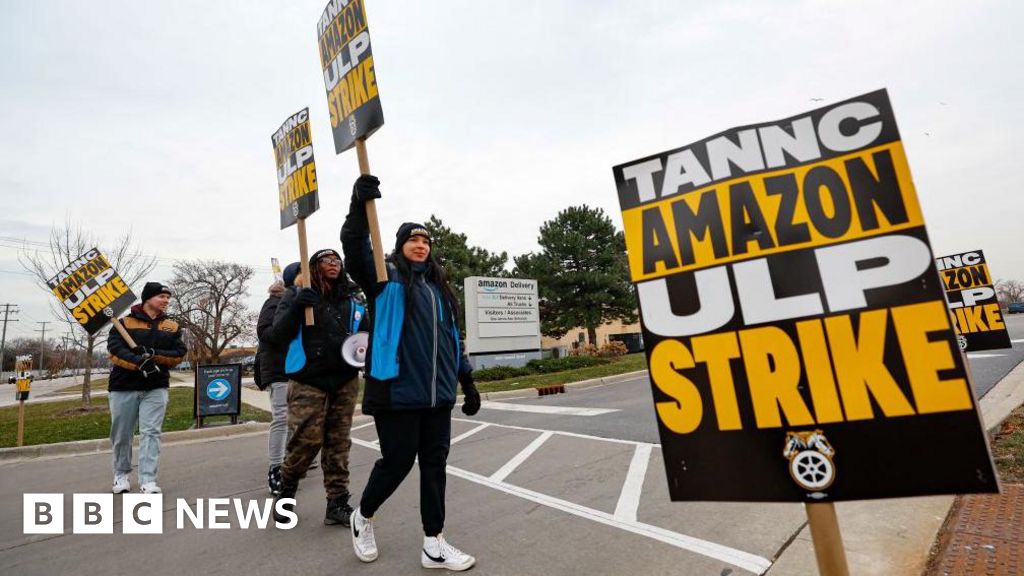The government is warning of a "grim" September with up to 6,000 jobs set to be cut across the steel and oil refining industries, the BBC understands.
A total of 2,800 jobs are set to go at Port Talbot in Wales, while up to 3,000 jobs are expected to be axed at British Steel in Scunthorpe. A further 400 will be cut at Scotland's Grangemouth oil refinery.
Unions' hopes that investment from a new Labour government could help limit job losses have largely been dashed, according to sources.
The government said it was facing "tough decisions" but added: "The solution isn’t writing a blank cheque to bail out the past, or to put taxpayers on the hook for the industrial challenges we’ve inherited."
Labour's manifesto promised a kitty of £2.5bn to revitalise the UK steel industry.
But the new government has taken a similar line to its predecessor by insisting that public money is only available to invest in new greener steel production facilities, rather than to subsidise large ongoing losses at carbon-intensive plants.
Both Tata, the Indian firm which owns Port Talbot and Jingye of China, which owns Scunthorpe, insist the plants are losing £1m a day.
The government is in talks to finalise a grant to Tata of £500m towards the £1.25bn cost of building an electric arc furnace which will eventually replace the last remaining blast furnace at Port Talbot.
Blast furnaces use coke in the process of creating "virgin" steel but the process generates carbon dioxide while electric arc furnaces are mostly used to melt down and repurpose scrap steel.
This process cannot replicate all grades of steel that are produced in blast furnaces, including some types used in construction and rail.
At Port Talbot, the GMB and Community unions have presented members with a redundancy deal struck with Tata which would see workers receive 2.8 weeks of earnings for every year of service up to a maximum of 25 years.
Workers can also sign up to a one-year skills and re-training scheme during which they will be paid £27,000.
Union officials hope the number of immediate compulsory redundancies at the UK’s biggest steel works will end up being far lower than 2,800 as many workers who left recently have not been replaced. There have been more than 2,000 expressions of interest in the redundancy and re-training package being offered.
In Scunthorpe, prospects for workers have deteriorated more suddenly.
Unions had hoped that a government support package of up to £600m to Jingye would see one of its remaining blast furnaces remain open during the three years it took to build a new electric arc furnace.
That prospect has faded, according to union and government sources, meaning that up to 3,000 jobs could go.
Asked how the government felt about the next few weeks, a senior source said: "It's going to feel grim."
Unions have told the BBC that the closure of blast furnaces at both Port Talbot and Scunthorpe would leave the UK without the ability to make virgin steel.
But other industry voices have downplayed such vulnerabilities, pointing out that the coking coal and iron ore used in blast furnaces are imported from abroad, so importing some virgin steel would make little difference.
Meanwhile, an announcement is expected this month to confirm that Scotland’s only remaining oil refinery at Grangemouth will shut down early next year to become a less labour-intensive oil and gas import terminal.
Government promises to explore a sustainable future for the site based on the planned expansion of renewable energy in Scotland are not expected to come soon enough to save up to 400 jobs.
A government spokesman said: "Decarbonisation does not mean deindustrialisation and government will continue working in partnership with trade unions and business to support good, stable jobs and deliver economic growth."
A spokesperson for British Steel in Scunthorpe said bosses were in "ongoing discussions" with the government over its future operations.
"While progress continues, no final decisions have been made," they added.

 3 months ago
23
3 months ago
23









